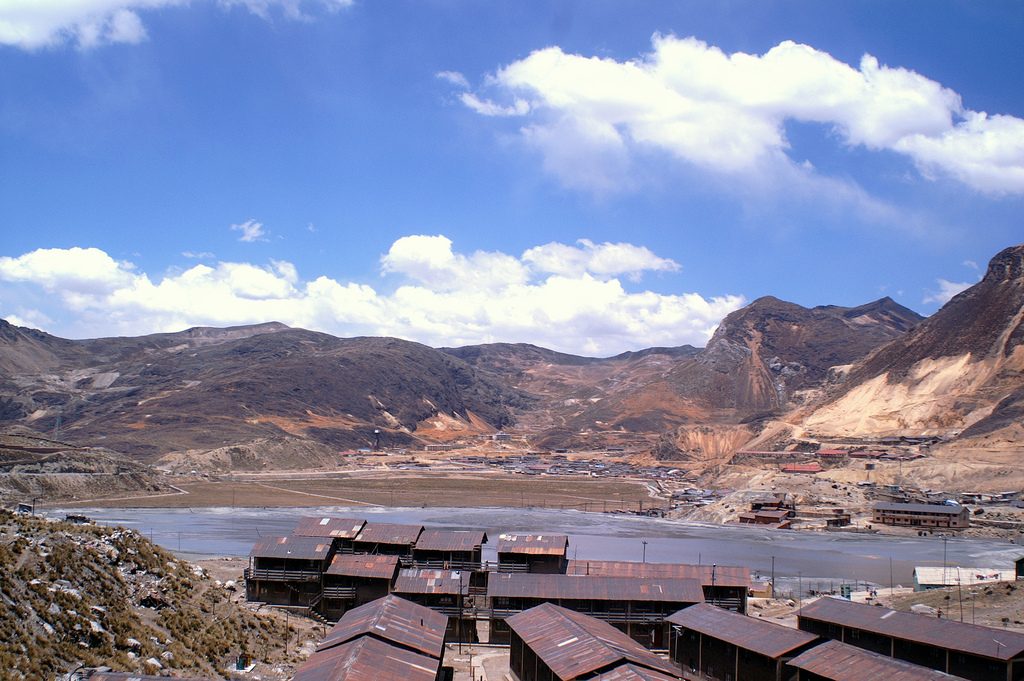The goods we utilize everyday appear as mundane, ubiquitous, and even intimate. Thus, have you thought where these everyday products origin from? Have you thought of how many minerals and metals there needs to be extracted and utilized to make the products? And what this extraction of minerals implies in practice for all the stakeholders involved in these mining processes? Ethical consumption, awareness of environmental impact of products, and transparency of companies are today much after sought information for consumers. Retail companies are publishing environmental and social reports about their actions and products. However, the reports do not always include information of obtaining of raw materials for their product, one example is Samsung’s life-cycle assessment of mobile phones. The report suggests that the obtaining of raw-materials for phones is responsible for 52,6% of the environmental impact for phones, but it does not suggest what the reason is for the high percentage. The increasing demand of minerals and metals, with the concurrent consumer demand for ethical mining practices, have put the mining industry in a tough situation.
Whilst the market is demanding more production resources from our common utilities, the local communities affected by mining operations are protesting these actions. To address these issues, we have set up an interdisciplinary group as part of the Sustainability Master Class program facilitated by the University of Helsinki, Helsinki Think Company, Demos Helsinki and Outotec in co-operation. Our group, referred upon as Mind Miners, aspires to lend a helping hand to the mining industry in the journey of becoming socially sustainable. Our aim is to assist the industry by providing them with a practical framework of tools applied the establishment and maintenance of a social license to operate (SLO). The SLO is one of the proposed means to satisfy society’s expectations regarding mining issues, which are often not met in full legal compliance with state regulation.

Unlike other businesses, the location of mine is based on the minerals found in bedrocks. Therefore, the mining industry is faced with problems from local communities defending their land against the industry. In terms of social sustainability, the locational choices of the mines might lead to quarrels with the local stakeholders involved. Peru can be mentioned as an example. Although the mining industry has increased the economic growth with 6%, it has not improved the local life, therefore, the locals are disappointed. In many cases the communication with different stakeholders has been inefficient resulting in a general mistrust in the company. The operations might even lament the wishes of the local communities. These examples underline the importance of careful considerations of the social issues related to mining operations. This implies not only the proper respect of labor rights within the mine, but on a broader scale the inclusion of all of those possibly affected by the operations.
SLO is not only beneficial to the society but also for the company. Both the company and the society can achieve shared benefit by having mutual trust and understanding. An effectively designed SLO will help to improve the living standards of the people located nearby the mining area and reduce and/or eliminate the negative social, environmental, and economic impacts. On the other hand, mining sector can enhance their image with different stakeholders and have uninterrupted mining operations. By having good relation with the key local stakeholders mining companies can enjoy both short term and long term benefits. The SLO is particularly supportive in case of disasters at the mining site. Accidents happen, but if the SLO is not tuned properly then the actions of the mines might be shot down by the local community. Losing the SLO might mean losing the mine totally.
It is nicer to live with neighbors that you get along with, than with people you can’t stand.
Therefore, is it important to remember to lift the positive aspects of the mining industry forth, rather than expressing the negative aspects. Mining has been around for centuries, and creates jobs in rural areas where unemployment rates otherwise would be high. As John Maynard Keynes said “The difficulty lies not so much in developing new ideas as in escaping from old ones”. We wish to break old ways of thinking and find nearest route to a solution where everyone benefits for mining industries when obtaining SLO’s. Most importantly it is to remember to listen to the wishes of the local communities and to assess the relevance of different stakeholders. Even if the locals do not have too much power to influence the business itself, their opinion is vital for miners to operate. It can almost be compared to a neighbor feud. It is nicer to live with neighbors that you get along with, than with people you can’t stand. The same could be said about mining. Without stakeholder’s trust the operations would be difficult and problematic.
Written by
Mind Miners: Aryal Nabin, Fustioni Pirke, Häkkinen Anu, Ikonen Anna, Nieminen Lotta, Sarttila Emmi and Vehmaanperä Paula